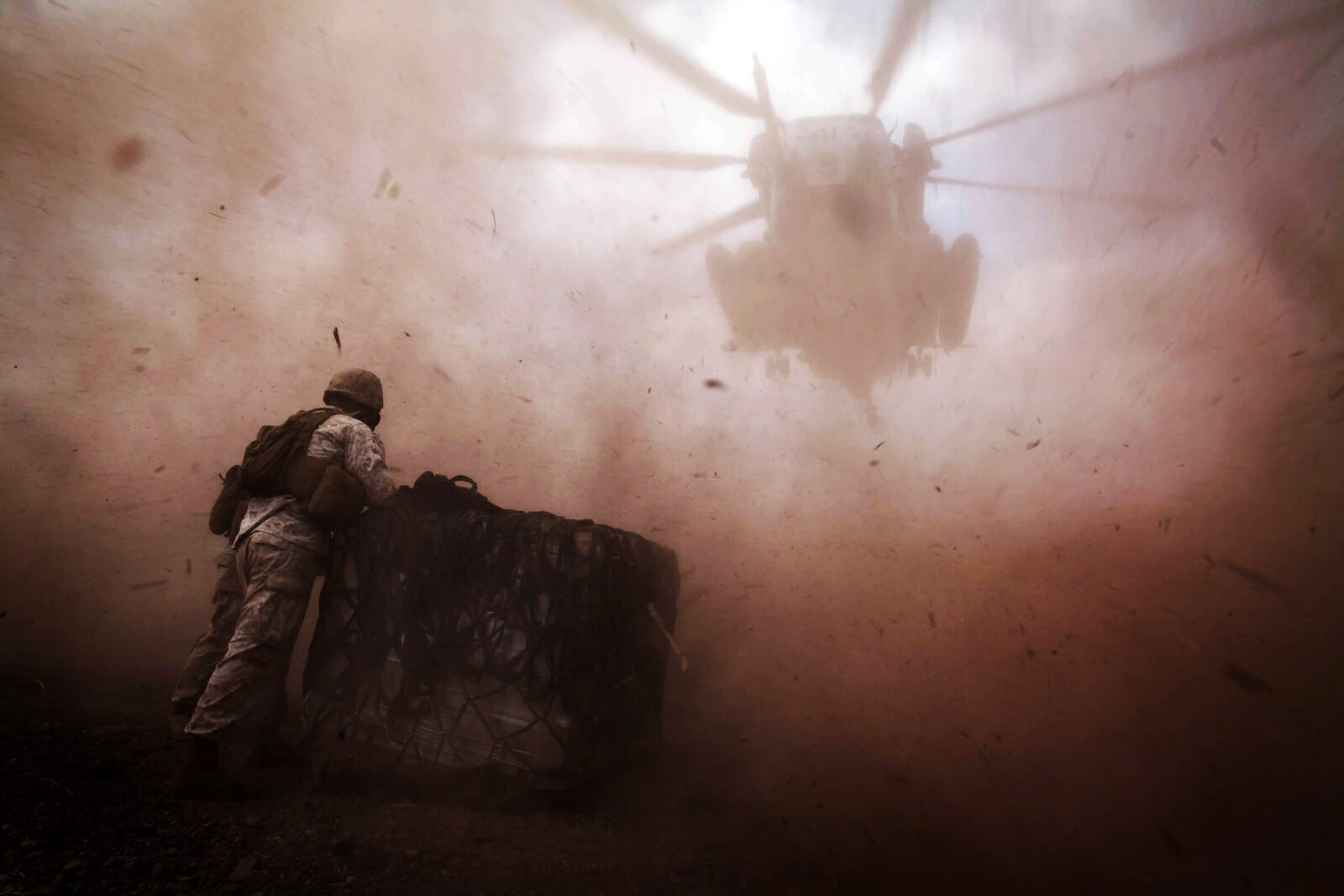
The Next American Crusade: The U.S. Military Campaign in Africa
Despite upcoming deep cuts to the Pentagon’s budget, the United States has embarked on a military campaign in Africa. Confidential sources inside AFRICOM (the United States military’s Africa Command) spoke of a large increase of materials and manpower making its way to Africa in early 2011. The past year saw a very quiet and concerted effort on the part of the administration to continue the U.S. military and intelligence build up on the continent. The latest announcement of an additional three to five thousand troops was accompanied by several conditions and caveats meant to ease any doubt that the troops are there to assist in counterterrorism operations. This is remarkable noting the impending budget crunch the military will endure, the constant down-play by the administration of the condition of Al Qaeda and the overall resistance to venture into another armed conflict.
Nick Turse’s piece “Obama’s Struggle for Africa” was first to highlight the new American build up in Africa in mid-2012. The American public has heard little of this and understandably so. With millions of dollars of military and non-military supplies being shipped to the continent, and the establishment of seemingly permanent bases and airfields, the entire venture has the taste and smell of another American crusade: the Vietnam War. A variety of different sources openly state that there are American Special Forces operating in Africa. This new venture abroad has begun with little reporting from the media or statements from the government.
The speech by General Carter Ham at Brown University on December 19th mentions only “about 100 special forces” in the African theater and fails to note the other 2,000+ already there. Furthermore, there are few concrete examples of what the new, additional troops called the Dagger Brigade will specifically do.
Their ninety-six planned activities in thirty-five African nations were referred to as “engagements” in one line of Ham’s speech, but “cooperation activities and exercises” only a few lines later. Ham reiterates that the American intention is to have a “low-cost light footprint.” The operations are meant to be African with only U.S. assistance. The audience was pessimistic about Ham’s speech and American intentions.
This doubt is well founded. The pronounced goals of the United States in Africa are the three Ds: diplomacy, development, and defense. Yet, is it not striking that AFRICOM was established in 2008, which was the same year that Africa overtook the Middle East as the leading supplier of crude oil to the U.S. For example, the U.S. is Nigeria’s leading trading partner accounting for 29% of their exports. Their chief export: crude oil. There is also the specter of nation-building. Americans have already trained revolutionaries in Mali. The African people are clearly not comfortable with the U.S. role in their military affairs. They should not be. The United States has a poor record of picking winners and losers: Vietnam in the 1960s, Iran in the 1970s and now the anarchy in Egypt. Cognitive imagery is not the only problem.
The United States has a very brief history of operations in Africa. The continent is comprised of many different nations and peoples, many still using the same borders from the colonial period. Many of these borders were haphazardly made with little regard to the population. The peoples of Africa speak some 1,200 different languages and dialects. Colonel Jeff Broadwater, a unit commander with the Dagger Brigade, feels fortunate to have some “native speakers,” meaning Swahili. This accounts for only about seven countries on the continent. Additionally, many countries in Africa have as few as four and as many as ten distinct different major peoples. While many practice religions that are well-known, many still practice local religions. Little is widely known about many of these different cultures and societies outside of Africa. Yet, Broadwater states that they are “just trying to basically trying to understand you know, a little more about Africa.” It is clear that this is a mission that the U.S. is not prepared for.
There is another question to be asked about the operations in Africa. Nothing has been said about who the United States arms or how that decision is made. Ham states that there are “background checks” making sure that the groups are not guilty of human rights violations. Arming a government or group should be more conditional than that if the United States chooses to arm countries at all. It should make our military leaders hesitant after a decade of fighting forces we armed in the past. It is already established that Al Qaeda and other associated groups, al Shabab and Boko Haram, are active in the country. There is little to prevent these same weapons from falling into the hands of these radical extremists.
In an interesting note, when asked about this very subject, Gen. Ham stated that who to arm and when was a State Department decision. It would seem that a logical solution would be to arm, or assist further, the African Union. The African Union has quietly become a very effective, organic force on the continent.
They work closely with the United Nations. They are making moves to oversee peace talks in the Congo. They sent election observers to Kenya. They are initiating an integrated maritime strategy. Along with Somali government forces, African Union forces have recaptured a large part of the country. Africans have a solution to their problems and it is an African one. Implementing “western justice” on yet another continent won’t be successful or foster long term cooperation and trust. Such an American presence in Africa is superfluous. While assistance from the United States is needed, 10,000 sets of boots on the ground is hardly the answer.
Deploying two brigades of American soldiers to a continent with seventeen countries that have had State Department Travel Advisories in the last six months is a recipe for disaster. Surreptitiously arming particular factions has proven dangerous. This is a situation where prudence and steady support for the African Union are the best policies. Perhaps that is what this administration is looking for. One theory is that our military presence in Africa could be used to distract the American public from domestic troubles. It would not be the first time a government used a limited engagement to deflect attention from other matters. However, I don’t see the administration being so strategic. This is the problem. I simply think it is the same mistake that the United States has made before.

